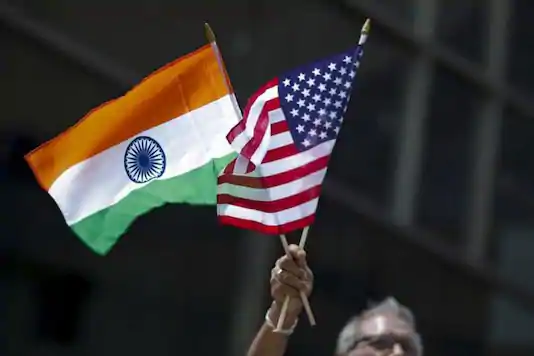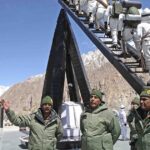
SOURCE: PTI
India and the US have been too cautious in expanding the framework of ‘Quad’ due to China’s possible reaction, and the coalition can be extended to broader areas of shared interests and with other like-minded partners seeking a free and open Indo-Pacific, US Deputy Secretary of State Stephen Biegun said on Monday.
In an address at a think-tank, Biegun said there was an “enormous” opportunity for a “security relationship” with India as he elaborated on conditions for a fundamental alignment between the two countries while referring to China as “an elephant in the room”.
“As the United States assesses our own interests and how they intersect with India’s, we have seen the conditions emerge for an organic and deeper partnership, not an alliance on the postwar model but a fundamental alignment along shared security and geopolitical goals, shared interests, and shared values,” he said. “Of course, as we advance in this direction, there is an elephant in the room -China,” the US Deputy Secretary of State said.
Biegun arrived here on Monday on a three-day visit primarily to finalise the groundwork for the third edition of two-plus-two dialogue between the two countries later this month. “India has a strong and proud tradition of strategic autonomy, and we respect that. We do not seek to change India’s traditions.
“Rather we want to explore how to empower them and India’s ability to defend its own sovereignty and democracy and to advance Indian interests across the Indo-Pacific region,” he said. In the course of his address at the India-US forum, organised by Ananta Centre, Biegun majorly focused on the need for expansion of the ‘Quad’, saying like-minded countries and groupings must join hands to ensure a free and open Indo-Pacific.
The foreign ministers of Quad comprising the US, India, Australia and Japan met in Tokyo on October 6 during which they agreed to deepen cooperation in the Indo-Pacific region. “Together with Japan and Australia, we are four democratic anchors in an Indo-Pacific region buffeted by changing winds and shifting currents,” he said.
The US deputy secretary of state also quoted Indian strategic affairs expert Ashok Kantha to say that India and the US have been too cautious to develop the Quad by wondering how China would react. “I could not agree more with Ambassador Kantha. We have been too cautious. Last week’s important and successful Quad ministerial leaves the United States confident that perhaps, just maybe, we can say that we are present at the creation of those strategic linkages to which Ambassador Kantha refers,” Biegun said.
The evolving situation in the Indo-Pacific region in the wake of China’s increasing military muscle-flexing has become a major talking point among leading global powers in the last few years. The US has been favouring making Quad a security architecture to check China’s growing assertiveness. In Southeast Asia, he said Quad partners can deepen engagement with 10-nation ASEAN grouping, cooperate in defending freedom of the seas, and work together in governance, health, environmental protection and transparent data sharing.
“The Quad is a partnership driven by shared interests, not binding obligations, and is not intended to be an exclusive grouping. Any country that seeks a free and open Indo-Pacific and is willing to take steps to ensure that should be welcome to work with us,” Biegun said. He further said, “Our work together in the Quad and in other multilateral groupings are critical pillars toward this end, as is formalizing our cooperation – bilaterally and with others – in more regular and systematic ways that offer benefits to our nations’ security.” On defence and security ties with India, Biegun said the US has already begun increasing foreign military sales and intelligence sharing with India.
“But there is more that we can do, including strengthening India’s ability to defend itself and by promoting interoperability among our militaries through regular exercises and exchanges, common defense platforms, and co-development. “The upcoming 2+2 Ministerial meeting between Secretary Pompeo and Minister Jaishankar and their respective defense counterparts will be an excellent opportunity to explore the next steps on some of these issues,” he said.
He said the two nations are destined for “great things” and that it is up to “us” to accelerate the momentum. Biegun also referred to close collaboration between India and the US in areas of trade and investment, energy, education and “perhaps most critically this past year -unprecedented levels of cooperation to combat the coronavirus pandemic”.






